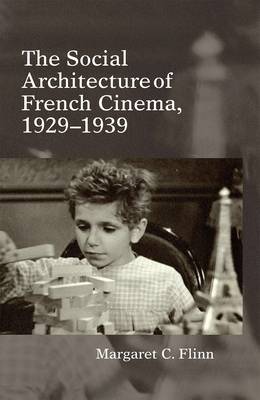
- Afhalen na 1 uur in een winkel met voorraad
- Gratis thuislevering in België vanaf € 30
- Ruim aanbod met 7 miljoen producten
- Afhalen na 1 uur in een winkel met voorraad
- Gratis thuislevering in België vanaf € 30
- Ruim aanbod met 7 miljoen producten
Zoeken
Omschrijving
From the fleetingly captured street scenes of the city symphony, to the meticulously reconstructed studio city of musical comedies; from the propagandistic Popular Front documentaries about construction workers, to poetic realism's bittersweet portraits of populist neighborhoods: Social Architecture explores the construction, representation and experience of spaces and places in documentary and realist films of the French 1930s. In this book, Margaret C. Flinn tracks the relation between the emergent techniques of French sound cinema and its thematic, social and political preoccupations through analysis of discourse in contemporary press, theoretical texts and through readings of films themselves. New light is shed on works of canonical directors such as Renoir, Clair, Vigo and Duvivier by their consideration in relationship to little known documentary films of the era. Flinn argues that film has a readable architecture--a configuration of narrative and representations that informs, explains, and creates social identities, while reflecting upon the position of individuals within their societies.
Specificaties
Betrokkenen
- Auteur(s):
- Uitgeverij:
Inhoud
- Aantal bladzijden:
- 254
- Taal:
- Engels
- Reeks:
- Reeksnummer:
- nr. 34
Eigenschappen
- Productcode (EAN):
- 9781781380338
- Verschijningsdatum:
- 22/07/2014
- Uitvoering:
- Hardcover
- Formaat:
- Genaaid
- Afmetingen:
- 157 mm x 234 mm
- Gewicht:
- 521 g

Alleen bij Standaard Boekhandel
+ 223 punten op je klantenkaart van Standaard Boekhandel
Beoordelingen
We publiceren alleen reviews die voldoen aan de voorwaarden voor reviews. Bekijk onze voorwaarden voor reviews.











